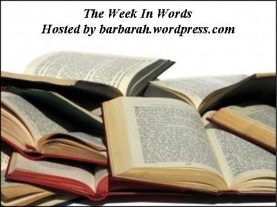“She’s crazy!” my friend proclaimed from the front of the vehicle when I mentioned that I had just finished listening to Ann Coulter’s Demonic: How the Liberal Mob is Endangering America via the text-to-speech feature on my Kindle.
I’ll admit that this is a common reaction to Coulter–and one that I’m inclined to agree with.
I’m disappointed that this is the case, though, because her “crazy” often ends up masking that she’s also brilliant.
Coulter’s Demonic is typical of her books in that it is brash, liberal-bashing, and stuffed with well-researched connections between historical and modern events.
Coulter’s thesis is that “the Democratic Party is the party of the mob, irrespective of what the mob represents.” She argues that the Democrats gain power by encouraging mob behavior and then by manipulating said mob to their own means.
In the first part of Demonic, Coulter compares the behavior of modern day liberals to that of Gustave Le Bon’s description of a mob in The Crowd: A Study of the Popular Mind (published in 1896).
“All the characteristics of mob behavior set forth by Le Bon in 1895 are evident in modern liberalism–simplistic, extreme black-and-white thinking, fear of novelty, inability to follow logical arguments, acceptance of contradictory ideas, being transfixed by images, a religious worship of their leaders, and a blind hatred of their opponents.”
Coulter unpacks each of these characteristics, citing dozens of prominent examples for each accusation. To the accusation that all American politics is simply mob behavior, she offers conservative counterexamples (For example, the criticism that Ronald Reagan experienced from conservatives during his eight year presidency as a counterexample to political “idol” worship.)
In the second part of Demonic, Coulter argues that Liberal mob behavior has its roots in the lawless French Revolution–a revolution about as foreign to the American Revolution as you can get (despite modern attempts to compare them). In this second section, Coulter devotes less time to insulting modern liberals and focuses on the history of the respective revolutions–leaving the reader to draw parallels with modern times as she contrasts the French Revolution’s godless mobs and the American Revolutionaries’ objections which, only as a last resort (and with careful advance planning by a thoughtful assembly), resulted in violent war. Interestingly, Coulter describes how the Founding Fathers were of a split opinion regarding the original Boston Tea Party–with some arguing that it was too close to mob behavior while others argued that it was not mob-like because it had been carefully planned only after lawful attempts at protest had been exhausted. Apparent in all the Founding Fathers’ discussion of the Tea Party was their inherent distaste for mob behavior.
Which leads to the third part of Demonic, in which Coulter describes the tendency of liberals to instigate, abet, and defend violent mobs. Coulter gives the college campus protests of the sixties, civil rights mobs (both on the pro- and anti- civil rights sides), and the Central Park rape case as examples of the above. She also works through a number of media accusations of violent behavior from conservatives, finding that in most cases the accusations were overblown (or the violent individuals and groups were not conservatives after all.)
Finally, Coulter attempts a psychoanalysis of liberal mobs, asking “Why would anyone be a liberal?” She answers her own question by saying that liberals 1) have a thirst for popularity, 2) ignore the history of the French Revolution and therefore commit its same mistakes, and 3) hate traditional morality and are willing to do anything to overthrow it. Coulter ends by trying (not entirely successfully) to explain her cryptic title, explaining that Satan is the father of the mob.
Can you see the “crazy” even in just my description of Demonic? Coulter has a determined animosity towards liberals and makes no attempt to hide it. She isn’t going to “play nice” or “soften the blow” with meaningless affirmations. She says it exactly as she sees it.
Unfortunately (I think), this animus is likely to make most people dismiss the connections Coulter has made between historical and current events. I think her readers are likely to either agree with her animosity and be confirmed in their biases against liberals and liberalism or they are going to disagree with her animosity and take offense–most on either side missing the historical warning against mob-like behavior.
For my part, I like to think that I’m a more discriminating reader–able to glean valuable insight that will help me to combat mob behavior wherever it is found (on the left or the right or anywhere else) without adopting Coulter’s abrasive attitude towards the Left.
And I pray, that by God’s grace, I would recognize that “we do not wrestle against flesh and blood, but against the rulers, against the authorities, against the cosmic powers over this present darkness, against the spiritual forces of evil in the heavenly places” (Eph 6:12).
While I fully support strong action against unlawful mob behavior, my war is not against the mob. While I am a committed conservative, my war is not against liberals. My war is spiritual, not physical.
I have a different strategy than political machinations, than legal cases, than military action. My strategy is to fasten truth as a belt around my waist, to let righteousness guard my chest, to prepare my feet to share the gospel of peace, to trust God to deflect the devil’s arrows, to let salvation be a crown on my head, and to fight with God’s word to advance the gospel of Christ (Eph 6:13-20).
I will love my enemies–not in the sense that I will capitulate to a mob’s demands–but in the sense that I will sacrifice in order that they can know salvation in Christ. How can I do any less when my Savior responded to the truly evil mob (including myself) who demanded His death by offering His life to the Father as a ransom for the mob’s sin?

